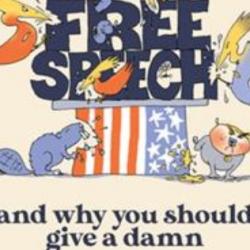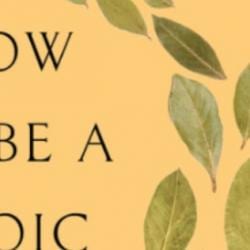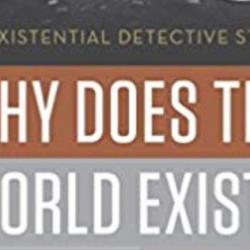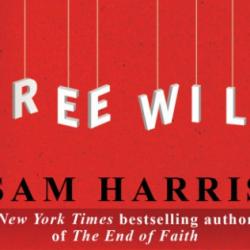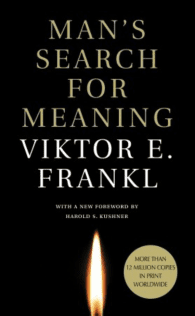 I was urged to read this book by my wife’s friend. The title was somewhat vaguely familiar, but in all honesty I was somewhat resistant to read it. Just a few pages in, however, I began to understand why this book is hailed as one of the most influential books of all time. In no uncertain terms,Viktor Frankl’s Man’s Search for Meaning is one of the most powerful books I’ve ever read.
I was urged to read this book by my wife’s friend. The title was somewhat vaguely familiar, but in all honesty I was somewhat resistant to read it. Just a few pages in, however, I began to understand why this book is hailed as one of the most influential books of all time. In no uncertain terms,Viktor Frankl’s Man’s Search for Meaning is one of the most powerful books I’ve ever read.
Dating back to 1946, this short text is an incredibly gripping autobiography and theo-philo-psychological masterpiece from the vantage point of not only a landmark psychotherapist, but a Holocaust survivor. Frankl pioneered “logotheraphy” which is all about striving towards a meaning. Far from being abstract or impersonal, he lived and witnessed logotheraphy in concentration camps – crediting this mindset as the difference maker for his survival (and others). For those that lost their compass or meaning, death was not only certain, but predictable in time and fashion. For Frankl, the loss of will to endure was like clockwork. First, the vision/compass/meaning is lost. Next, the spirit breaks and immanent death was soon to follow. Giving up in a concentration camp is effectively pronounced suicide.
Part I of the book is biographical, and offers these personal and professional experiences that are the basis of Frank’s logotherapy – that a focus on the future goal – a “will to meaning” is man’s “primary motivation in his life” (page 99). Part II of the book provides a detailed overview of logotherapy, and is contrasted to other philosophical and psychological viewpoints.
Part I.
Part I jumps right into Frankl’s loss of freedom and new reality faced in Auschwitz. Forced labor itself is a horrific idea. Even more harrowing though, is that those as able-to-labor were few and far between. As Frankl vividly recalls:
“For the great majority of our transport, about 90 percent, it meant death. Their sentence was carried out within the next few hours. Those who were sent to the left were marched from the station straight to the crematorium. This building, as I was told by someone who worked there, had the word ‘bath’ written over its doors in several European languages. On entering, each prisoner was handed a piece of soap, and then – but mercifully I do not need to describe the events which followed” (page 12).
He noticed three phases of those taken captive, specifically, “the period following his admission; the period where he is well entrenched in camp routine; and the period following his release and liberation” – shock being the symptom for the first phase, in many instances, even before arrival at the camp (page 8). His vividly laid out his own horrific train ride that ended in Auschwitz. Though all knew only horror lay ahead, denial and the “delusion of reprieve” (page 10) is an overwhelming response. As Frankl noted, “nearly everyone in our transport lived under the illusion that he would be reprieved, that everything would yet be well” (page 11).
After the shock/denial wore off, perhaps after witnessing countless death and cruelty, and coming into the full reality of the situation, Frankl saw prisoners enter the second pyschological phase: “the phase of relative apathy, in which he achieved a kind of emotional death” (page 20) which forced a primitive level of existence, thinking only about self-preseveration and surviving the day. This allowed emotional survival of the ongoing murders, beatings, and living conditions. As Frankl describes:
“When the last layers of subcutaneous fat had vanished, and we looked like skeletons disguised with skin and rages, we could watch our bodies beginning to devour themselves. The organism digested its own protein, and the muscles disappeared. Then the body had no powers of resistance left. One after another the members of the the little community in our hut died. Each of us could calculate with fair accuracy whose turn would be next, and when his own would come. After many observations we know the symptoms well, which made the correctness of our prognoses quite certain.” (page 30)
It’s immensely difficult to even imagine such an experience. First, the weak are marched off to die. Then, a core of those selected for labor succumb to starvation or illness. In watching the many around him die, he also got a closer profile of the few that survived. Those with a strong spiritual compass fared much better. As Frankl describes, “they were able to retreated from their terrible surroundings to a life of inner riches and spiritual freedom. Only in this way can one explain the apparent paradox that some prisoners of a less hardy make-up often seemed to survive camp life better than than those of a robust nature” (page 36). In the midst Frankl’s despair came this revelation:
“A thought transfixed me: for the first time in my life I saw the truth as it is set into song by so many poets, proclaimed as the final wisdom by so many thinkers. The truth – that love is the ultimate and highest goal to which man can aspire. Then I grasped the meaning of the greatest secret that human poetry and human thought and belief have to impart: The salvation of man is through love and in love.” (page 37)
To Frankl, the highest level of being, of human existence, is love. Thoughts of his wife kept his soul alive and yearning and he realized even in the midst of unspeakable suffering, we all have a choice. How will we respond? In Frankl’s words, “in a position of utter desolation, when man cannot express himself in positive action, when his only achievement may consist in enduring his sufferings in the right way-an honorable way – in such a position man can, through loving contemplation of the image he carriers of his beloved, achieve fulfillment” (37-38).
The deepening of one’s “inner life”, in the midst of such desolation, would be enabled by the contemplation of the memories of the past. Frankl also noted a marked awareness of art and nature that was acutely intensified. And for him personally, in the darkest of moments, an inner and spiritual ressolve:
“In a last violent protest against the hopelessness of immanent death, I sensed my spirit piercing through the enveloping gloom. I felt it transcend that hopeless, meaningless world, and from somewhere I heard a victories ‘Yes’ in answer to my question of the existence of an ultimate purpose.” (page 40)
In Frankl’s despair, he reached a new level of spiritual maturity. As a Holocaust survivor and psychologist, he’s quite opposed to the idea that we are just a byproduct of our biological, psychological, and sociological constructs. We always have a choice. In his words, “man can preserve a vestige of spiritual freedom, of independence of mind, even in such terrible conditions of psychic and physical stress” (page 65). Even in the midst of losing everything, the last of human freedom remains: “to choose one’s attitude in any given set of circumstances, to choose one’s own way” (page 66).
Some prisoners would give up and die, some would steal and cause death, some would comfort other prisoners and give them their last piece of bread. But there was always a choice. In this, Frankl’s realization that “it is this spiritual freedom-which cannot be taken away-that makes life meaningful and purposeful” (67). And for life to be meaningful, death and suffering are part of that reality – it amounts to a choice in now one lives, suffers, and dies. And so we come upon the ultimate realization of virtue and moral character:
The way in which a man accepts his fate and all the suffering it entails, he way in which he takes up his cross, gives him ample opportunity-even under the most difficult circumstances-to add a deeper meaning to his life. It may remain brave, dignified, and unselfish. Or in the bitter fight for self-preservation he may forget his human dignity and become no more than an animal. Here lies the chance for a man either to make sue of or to forgo the opportunities of attaining the moral values that a difficult situation may afford him.” (page 67)
It is this “spiritual freedom”, states Frankl, “that makes life meaningful and purposeful”. This can never be taken away (page 67). It is this conscious free will, this “spiritual freedom”, that ultimately separates us from other animals. The result of the “prisoner’s inner self”, Frankl asserts, “was not so much the enumerated psychological causes as it was the result of a free decision” (page 69). Further, it’s those who cease, in Dylan Thomas’ famous words, the “rage against the dying of the light” – the ones who give up further purpose, would ultimately cease finding it – the conscious awareness and spiritual freedom that is humanity.
“Varying this, we could say that most men in a concentration camp believed that the real opportunities of life had passed. Yet, in reality, there was an opportunity and a challenge. One could make a victory of those experiences, turning life into an inner triumph, or would could ignore the challenge and simply vegetate, as did a majority of these prisoners.” (page 72)
Those who gave up mentally would soon die physically. But for those that continued, back to Thomas, the “rage against the dying of the light”, Frankl noticed that the key to this inner strength for prisoners, was to point them to a future goal. This rage against the dying of the light, this commitment to strive for something, this hope – this was life-saving, mentally and physically. In Frankl’s words, “in this is his salvation in the most difficult moments of his existence, although sometimes he has to force his mind to the task” (page 73) and the “prisoner who had lost faith in the future-his future-was doomed” (page 74).
For those that did survive, then came the reintroduction into society – and a bitterness and disillusionment for a great many as the world now looked much different. For many, the vision or future they had hoped for – whether to be a person or place – was now gone. And so the challenge is the same, to cast a new vision, to continue raging against the dying of the light, to discover a new meaning. And while there is still breath in our lungs, while we still remain freely conscious creatures, so we are still offered this choice.
Part II.
In this section, logotherapy is further defined as “will to meaning” and contrasted to “will to pleasure” and “will to power”. For mental health, “what man actually needs is not a tensionless state but rather the struggling and striving for a worthwhile goal, a freely chosen task” and it’s not the “discharge of tension at any cost but the call of a potential meaning waiting to be fulfilled by him” (page 105). All have an existential vacuum to fill, what will be our stories?
For enthusiasts of Aristotle (of which I am), I am particularly persuaded by both the ontology and description of such a teleological or goal-oriented metaphysics and psychology. It is in this pursuit where virtue is found, as opposed to excess or deficiency. To these deep Aristotelian themes, lie the ideas of teleology and of potential and actualization for everything in nature. For humanity, “well-being” is not power, money, or the flagrant pursuit of pleasure, rather the virtuous fulfillment of the social and rational animal. Logotherapy sees responsibility, actualizing this potential, “at the very essence of human existence” (page 109).
Frankl continues:
“By declaring man is responsible and must actualize the potential meaning of his life, I wish to stress that the true meaning of life is to be discovered in the world rather than within man or his own psyche, as though it were a closed system. I have termed this constitutive characteristic ‘the self transcendence of human existence.’ It denotes the fact that being human always points, and is directed, to something, or someone, other than oneself-be it a meaning to fulfill or another human being to encounter. The more one forgets himself – by giving himself to a cause to serve or another person to love-the more human he is and the more he actualizes himself.” (page 110)
Such philosophical and psychological picture is quite contrary to nihilism or relativism. We do not create meaning, we discover and actualize it, according to our nature as social and rational animals, with the capacity to love. To the level we achieve this potential (objectively), to that is our level of “well-being”. As responsibility, free-choice, and the will to meaning (actualizing our potentials) are the essence of humanity, a mechanistic view of humanity that denies free will would be the farthest from his view. Surely, our freedom is restricted by our surroundings, but we always have a choice. In Frankl’s words, “as a professor in two fields, neurology and psychiatry, I am fully aware of the extent in which man is subject to biological, psychological, and sociological conditions. But in addition to being a professor in two fields I am a survivor of four camps – concentration camps, that is – and as such I also bear witness to the unexpected extent to which man is capable of defying and braving even the worst conditions conceivable” (page 130).
Whatever life throws our way, there always exists a choice. Perhaps summated more eloquently by Frankl:
“What he becomes – within the limits of endowment and environment – he has made out of himself. In the concentration camps, for example, in this living laboratory and on this testing ground, we watched and witnessed some of our comrades beehive like swine while others behaved like saints. Man has both potentialities within himself; which one is actualized depends on decisions but not on conditions.” (page 134).
This book is an epoch masterpiece in history, psychology, philosophy, and religion, and a must read for enthusiasts of any.




